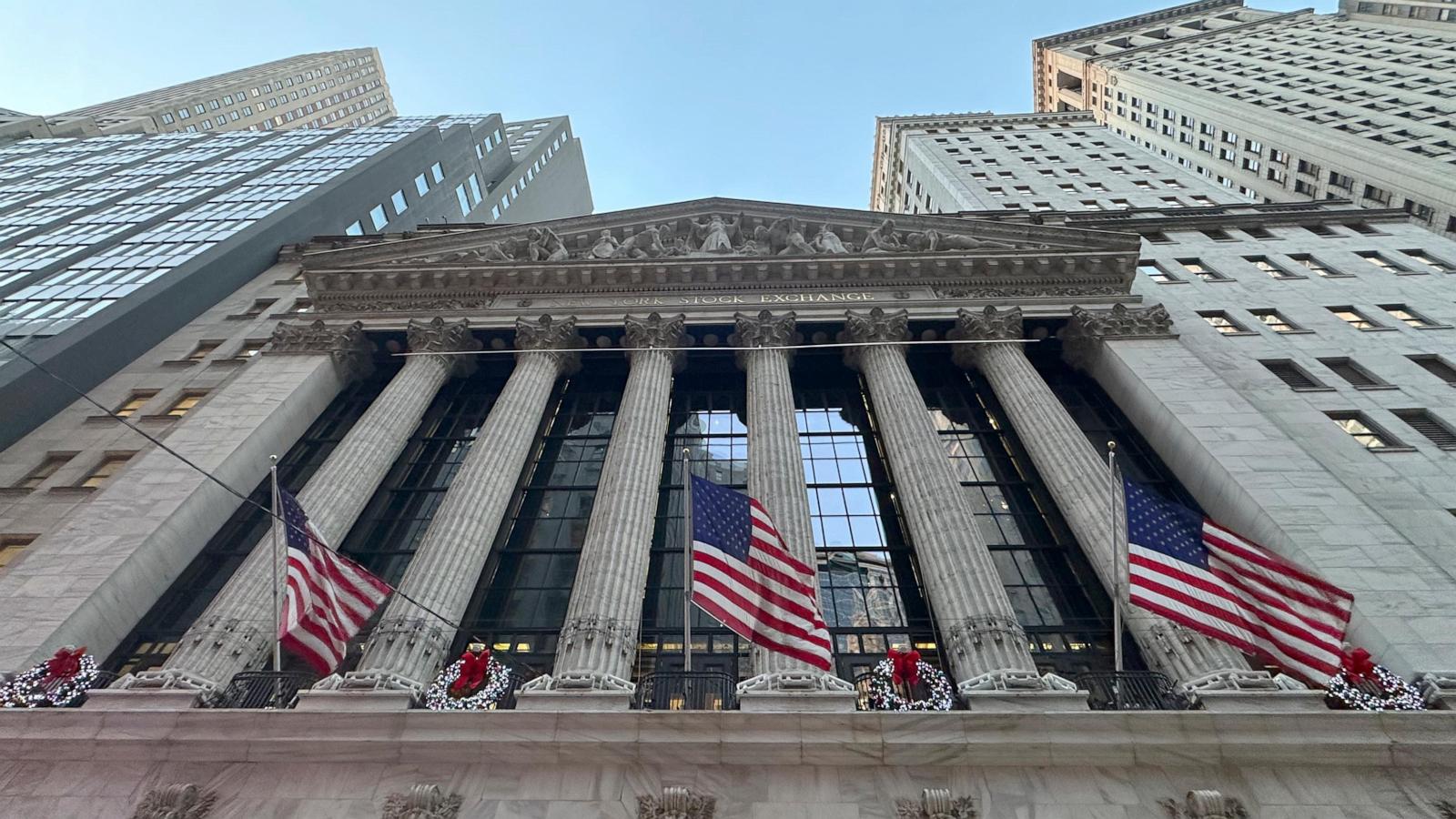Wall Street's Year-End Dip: A Look at the Market's Retreat
Is the end of 2024 bringing the holiday cheer to Wall Street? Not exactly. After a record-breaking 2024, markets are showing signs of a significant slowdown, prompting some to wonder: is the party over? Premarket trading on Monday painted a picture of subdued enthusiasm, with major indices signaling a possible downturn. But should investors be worried? Let's delve into the factors behind this dip and examine what it might mean for the future.
The S&P 500 and Dow Futures Dip
Futures contracts for the S&P 500 dipped by 0.4%, while the Dow Jones Industrial Average saw a less dramatic, yet still noticeable 0.3% decline before the market's open. This modest pullback, although modest, reflects the cautious sentiment among investors as the year closes.
International Market Reactions
The global markets didn't mirror the relative calmness of the US futures. The South Korean Kospi, for instance, took a noticeable 0.2% dip. This downturn was overshadowed by a devastating event impacting a low-cost South Korean airline, Jeju Air Co. One of the airline's Boeing 737-800s was involved in a tragic accident, resulting in a significant loss of life and a steep 8.7% fall in Jeju Air's shares. The incident further impacted Boeing's stock price, pushing its shares down by 3% in premarket trading. It raises serious concerns about Boeing's safety record following a machinists' strike and ongoing issues with its 737 MAX aircraft.
Boeing's Troubles Continue to Weigh on Markets
The tragic plane crash serves as another significant blow to Boeing's reputation. Adding to its woes is the ongoing saga of safety concerns and its plummeting stock price, now down over 30% for the year. The premarket trading indicated continued downward pressure on Boeing stock, adding to a sense of gloom among investors at the year's close. This is more than just one company's troubles; investors tend to react to these situations, and the entire market can suffer from uncertainty around a big company.
Unpacking the Boeing Crisis
What contributed to the accident remains under investigation, with the focus being on why the aircraft's landing gear failed to deploy. Until we uncover definitive answers, these uncertainty and the ongoing safety reviews might keep investor sentiment subdued concerning the broader aviation and manufacturing sectors. Furthermore, investor confidence is also important.
Economic Data and Federal Reserve Policy: A Balancing Act
Despite the recent market hesitancy, the broader US market is preparing for a potential finish to 2024, showing positive trends. The S&P 500 looks set to finish the year up around 25%, following over 20% growth in the prior year, a remarkable feat not seen since 1997-1998. The strength of the US market partly depends on positive economic data illustrating the persistence of consumer spending and a robust job market. While inflation remains stubbornly high, it's displaying gradual improvement, influencing a shift in the Federal Reserve's approach to interest rate policy.
Positive Economic Indicators
Upbeat economic data played a huge role in guiding market growth. As a matter of fact, positive numbers around consumer spending showed investors a healthier-than-expected outlook. The recent data that showed decreasing rates of inflation further support the market's general resilience, while the Federal Reserve's moves are also part of this story. This creates the ideal conditions for investor confidence to be boosted and also encourages stock-buying activity.
The Federal Reserve's Role
In response to these positive signals and steady inflation improvements, the Federal Reserve made an interesting move—a series of interest rate cuts. In fact, by the end of the year, the rate cuts reached three total cuts, positively influencing markets and fostering investor optimism about potential growth and a boost in stock prices. That is how closely-linked the markets are.
Global Market Overview: A Mixed Bag
While the US market shows some promise despite the dip, other parts of the globe display various trends at the year's close. Asian markets saw a combination of losses and gains, with Tokyo's Nikkei 225 ending 1% lower amid an insider trading scandal impacting the Japan Exchange Group's CEO. Conversely, Hong Kong's Hang Seng and the Shanghai Composite index showed modest gains of 0.2%, and 0.2% respectively.
Japan's Market Takes a Hit
Japan's market showed a 1% drop on the final trading day. There was some unfortunate news, specifically regarding an insider trading incident which was the focus of the Japan Exchange Group CEO's apology. This incident is creating some anxieties around investor confidence, though they promise to resolve the issues through improvement in training, a plan that's meant to inspire investors and bring trust back.
Europe's Steady Performance
European markets demonstrated more stability, with slight fluctuations in indices, although remaining relatively unchanged as the final trading hours began.
Take Away Points
- Despite a pre-market dip on Monday, Wall Street's 2024 performance remained overwhelmingly positive, defying the cautious predictions made early on in the year.
- Boeing's troubles, exemplified by the tragic Jeju Air plane crash and the company's continued safety issues, played a significant role in market trends.
- The combination of upbeat economic data and the Federal Reserve's policy decisions contributed substantially to market optimism.
- Global markets displayed diverse reactions as 2024 ended. Asian and European Markets displayed mixed results
- The future trajectory of market indices remains uncertain as various influential factors could still shape their performance in the coming year. While things seem rather good for now, investor confidence can change quite fast.




